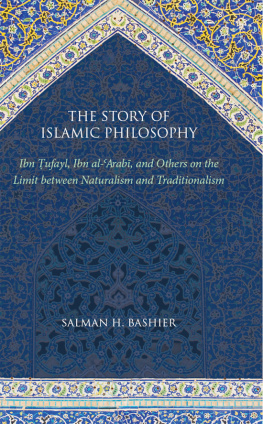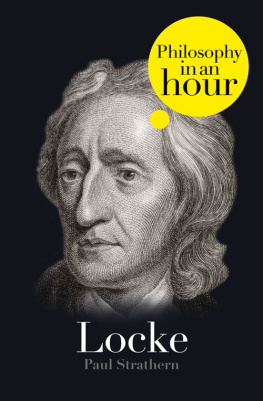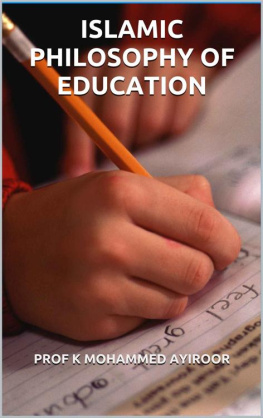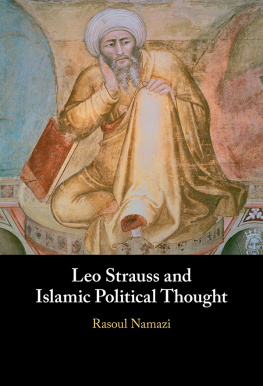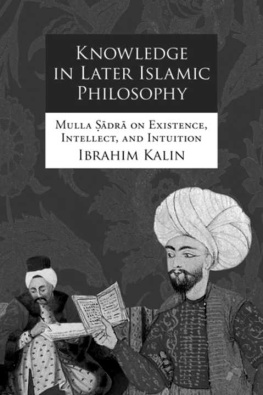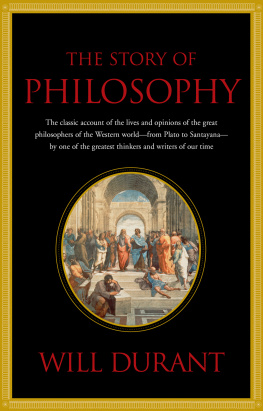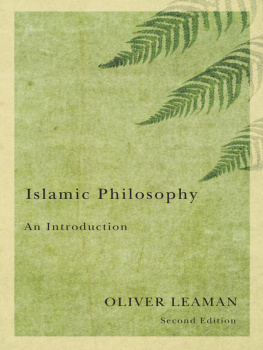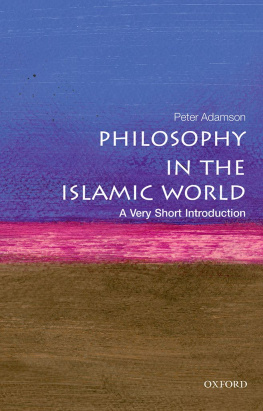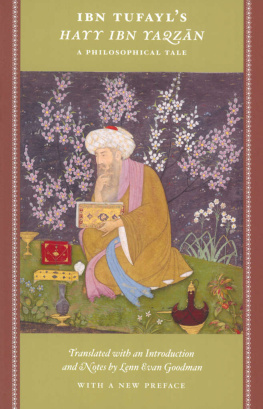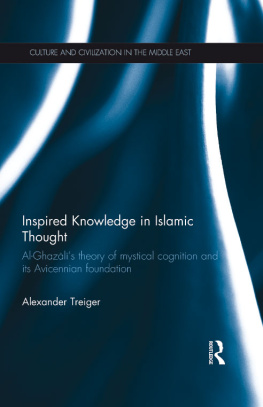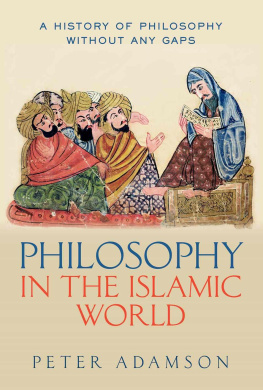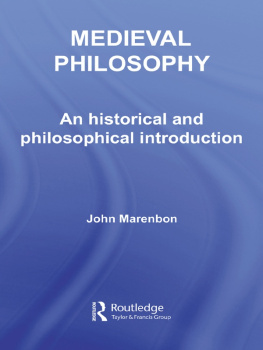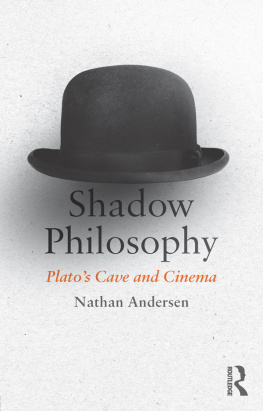The Story of Islamic Philosophy
Ibn ufayl, Ibn al- Arab, and Others on the
Limit Between Naturalism and Traditionalism
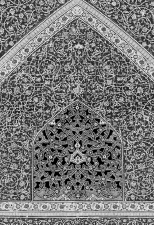
SALMAN H. BASHIER
STATE UNIVERSITY OF NEW YORK PRESS
To Sara Sviri and David Shulman
Published by State University of New York Press, Albany
2011 State University of New York
All rights reserved
Printed in the United States of America
No part of this book may be used or reproduced in any manner whatsoever without written permission. No part of this book may be stored in a retrieval system or transmitted in any form or by any means, including electronic, electrostatic, magnetic tape, mechanical, photocopying, recording, or otherwise without the prior permission in writing of the publisher.
For information, contact State University of New York Press, Albany, NY
www.sunypress.edu
Production Laurie Searl
Marketing Anne M. Valentine
Library of Congress Cataloging-in-Publication Data
Bashier, Salman H., 1964
The story of Islamic philosophy : Ibn Tufayl, Ibn al-'Arabi, and others on the limit between naturalism and traditionalism / Salman H. Bashier.
p. cm.
Includes index and bibliographical references.
ISBN 978-1-4384-3743-9 (hardcover : alk. paper) 1. Islamic philosophyHistory. 2. Naturalism. 3. Tradition (Philosophy) I. Title.
B741.B375 2011
181'.07dc22
2011006682
10 9 8 7 6 5 4 3 2 1
Acknowledgments
I would like to thank the Wissenschaftskolleg zu Berlin Institute for Advanced Study. During my fellowship year at the Wissenschaftskolleg (20072008) I enjoyed its most generous support and benefited a great deal from the enlightening conversations with fellows and distinguished scholars from all over the world. I also would like to thank the Van Leer Jerusalem Institute for a five-year Polonsky Postdoctoral Fellowship (commencing in 2008) that allowed me also to complete the work on the present book and also to start working on my new project. Among the several friends and intellectuals that I have interacted with during the work on this book I would like to thank especially Sara Sviri and David Shulman, both professors at the Hebrew University of Jerusalem. This book is dedicated to them.
Abbreviations
| A | Alf Layla wa-Layla |
| AEL | Arabic-English Lexicon |
| BL | Book of Letters |
| BWA | The Basic Works of Aristotle |
| FUS | Fu al-ikam |
| FUT | Futt Makkiyya |
| G | Gilgamesh |
| IAI | Ittil al-Aql bi-al-Insn |
| INM | Islamic Naturalism and Mysticism |
| KH | Kitb al-urf |
| MHQ | The Meaning of the Holy Qur'n |
| SD | The Self-Disclosure of God |
| TCD | The Collected Dialogues of Plato |
| THA | ayy Ibn Yaqn |
| THY | Ibn ufayl's ayy Ibn Yaqn |
Introduction
The story of Islamic philosophy is the story of the development of the human intellect from the rationalistic phase, represented in this study by Frb (d.950) The central tenet of this model is that following a rigorous and thorough exercise of the rational faculty, the human reason reaches a certain limit and is flooded with light. The thinker whose reason is brought to this liminal situation becomes aware of the limitations of his rational faculty and the possibility of obtaining knowledge by means of mystical illumination rather than mere rational conceptualization. This epistemological awareness is then extended to a comprehensive, liminal depiction of the ontological status of the world. Things in the world acquire an intermediary nature, and the world as a whole itself becomes a liminal entity between Truth (aqq) and its existential manifestations (khalq).
In this book, I use Ibn ufayl's work and the work of other Islamic thinkers to present the main principles of illuminative or liminal philosophy, while emphasizing its special capacity at articulating a synthetic vision of the naturalistic (or philosophical) and the traditionalistic (or religious) accounts of the epistemological and the ontological orders of reality. Ibn ufayl was known for his encyclopedic scholarship and his generous sponsorship of intellectual research, which is confirmed by the detailed account that Ibn Rushd (d. 1198)
In arguing for the originality of ayy, w insists that Ibn ufayl did not borrow his ideas from Ghazl or Ibn Sn, and that the utmost that one can infer is that they had an influence on his thought.
One might wonder how w's existentialist interpretation can be consistent with his statement that Ibn ufayl's philosophy becomes almost hollow and indigent if one strips it of its metaphysical locus. w's study as a whole seems to be divided into two unrelated parts in which rationalism and mysticism are presented independently of each other. His failure to present a coherent interpretation of Ibn ufayl's thought stems from his insistence on dissociating him from any possible influence by Ibn Sn, which prevents him from properly appreciating the significance of the illuminative account that Ibn Sn introduces in Ishrt and that Ibn ufayl employs as his basic model of the knowledge of illumination. As we shall see, Ibn Sn provides a liminal depiction of the mystical states (awl) and of the possessor of knowledge, who becomes, like them, a limit between presence (existence and manifestation) and absence (nonexistence and nonmanifestation) and a polished mirror facing the Real. In the same vein, Ibn ufayl provides a liminal depiction of the transcendent essences (dhawt mufriqa), which are imaginal reflections of the Real, and Hayy's essence, which becomes, like them, an imaginal representation of the Real.
In his attempt to show that ayy is devoid of the symbolic nature of Ibn Sn's mystical recitals, w emphasizes that the major part of the treatise consists of a progressive philosophical argument and that even the part that leads to the attainment of mystical enlightenment is also progressively substantiated by a full-blooded argument. Perhaps the best demonstration of the notion that reason in respect of itself possesses self-disclosure can be found in the logic that leads Ibn al-Arab to his paradoxical concept of the essential limit, or barzakh.
According to Aristotle, the limit is the ultimate part and essence of each thing because things are known by their limits.
Ibn al-Arab says that the possessors of unveiling know the essential limits and stop at them. This knowledge is difficult to attain because, unlike the formal limits (al-udd al-rasmiyya), the essential limits are difficult to find.
He who is guided is guided to bewilderment (ayra), considered by Ibn al-Arab as one of the highest stages of knowledge.
The knower attains live knowledge by turning himself into a liminal entity that resembles a perfectly polished mirror. By turning himself into such an entity, it becomes possible for the knower to see that which cannot be seen. This is because he sees with God's eye, not through his own eye from behind the veil of his essence. As I will show in what follows, what Ibn al- Arab says here is, in a sense, a summary of ayy's and Ibn ufayl's stories combined.
In introducing the naturalistic account of ayy's birth, Ibn ufayl presents a tripartite classification of bodies: transparent bodies that do not reflect light at all, such as air; dense bodies that reflect light partially; and bodies that reflect light perfectly, such as polished mirrors. In correspondence to this classification, he divides existents into inanimate objects, in whose form the Spirit, which resembles the light of the sun, does not leave any traces; plants in whose form the Spirit leaves some traces; and animals in whose form, and the form of the human being in particular, the Spirit leaves a full impression. As the presence of the form of the Spirit is reinforced in the form of the human being, its reality eclipses all other forms and whatever stands in its way. It then resembles a mirror that reflects on itself and burns everything else with the glories of its light. Then the form of the Spirit and the human form are united in a bond that is indissoluble not only according to the senses but also according to reason.
Next page
